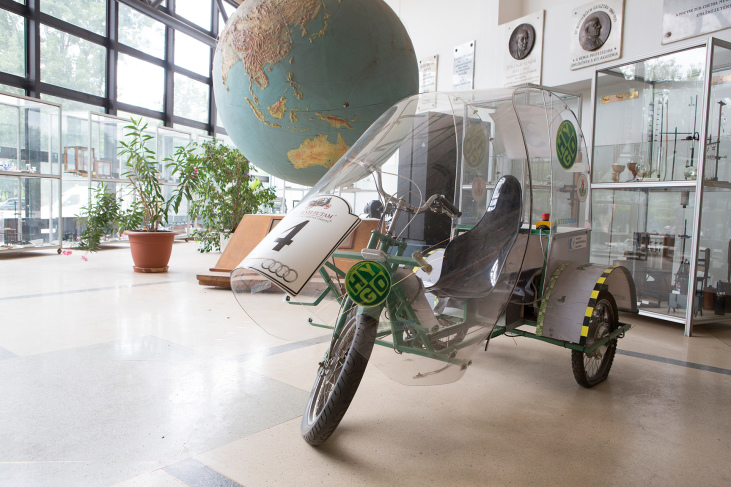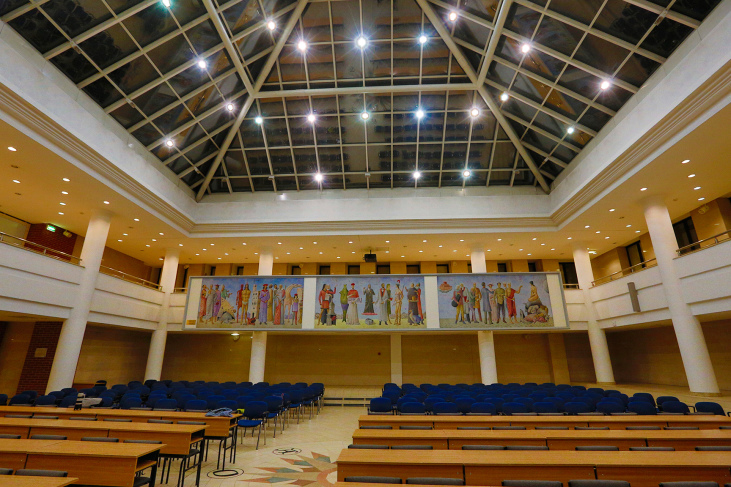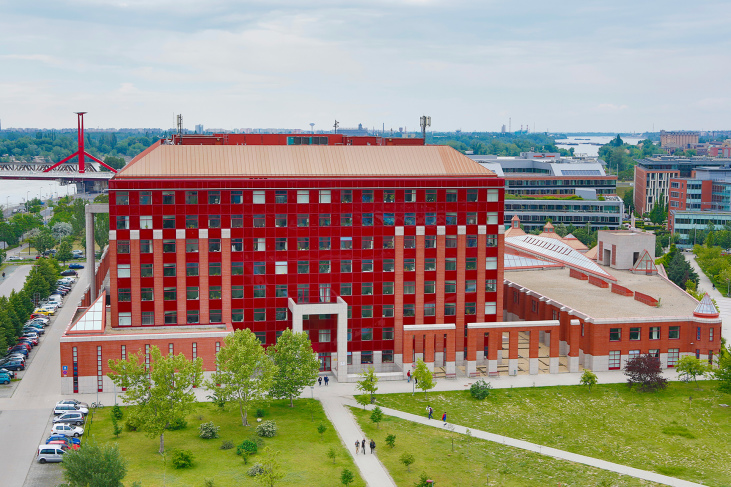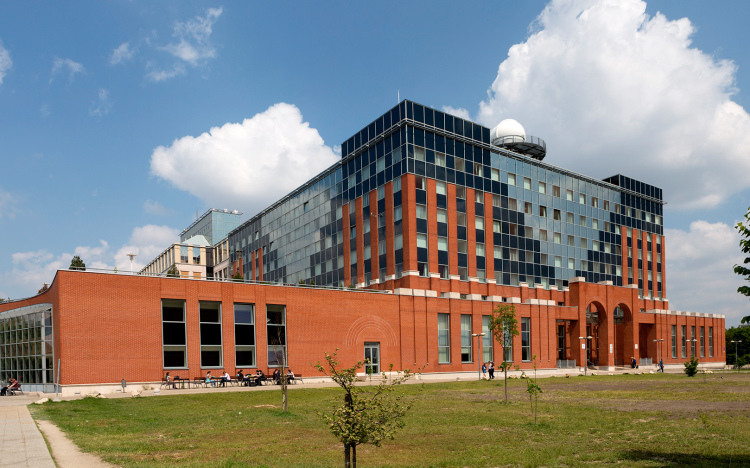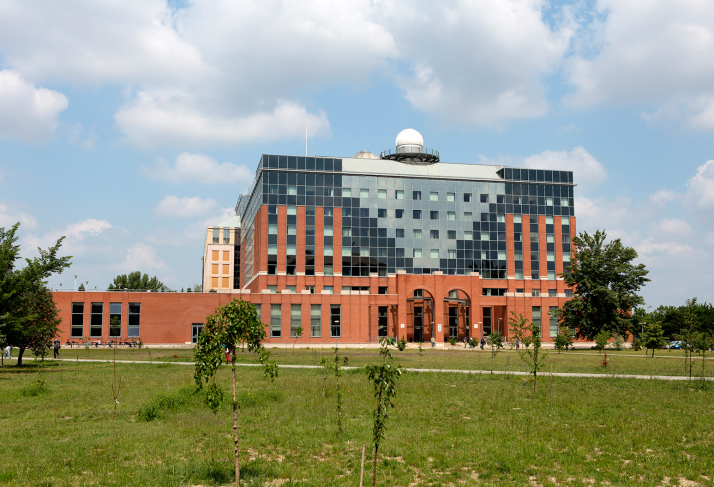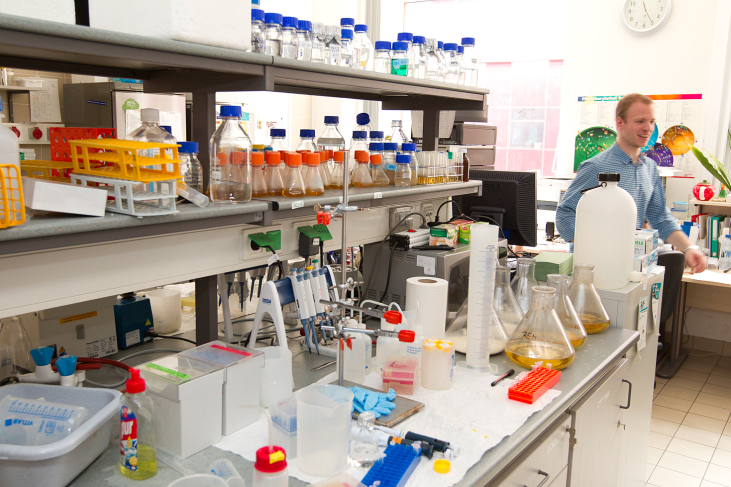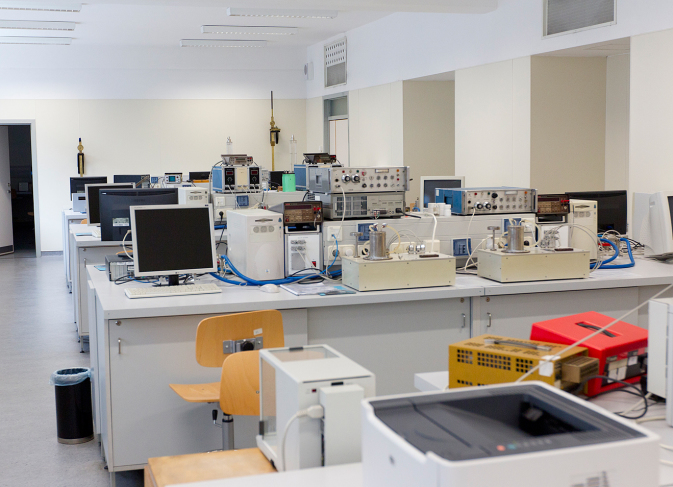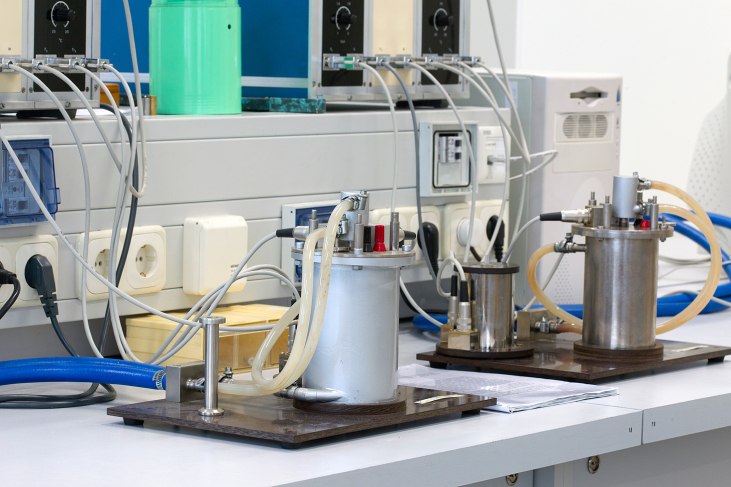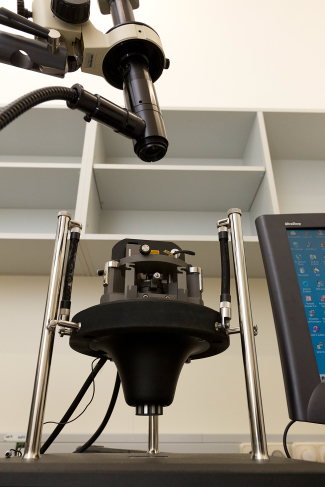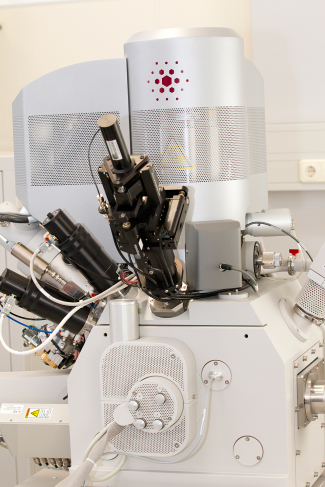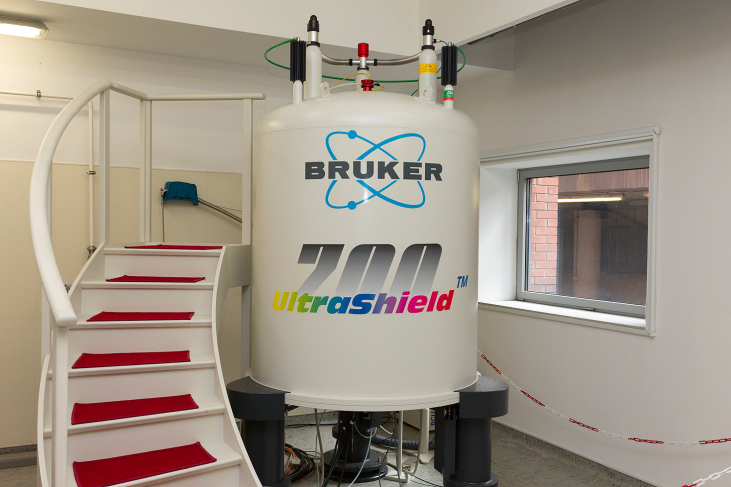Doctoral School of Biology

Brazil

Mexico
Doctoral School of Biology
Ph.D. in Biology
Degree program
Doctoral
OH-FRKP/406-3/2007.
Institute of Biology
Doctoral School of Biology
English
8 semesters (4 years)
240
3
60
The Doctoral School of Biology founded in 2001 is the largest postgraduate biology program in the country, offering research-oriented training in a wide range of areas of modern biology. The main topics include theoretical and evolutionary biology, ethology, ecology, and conservation biology, molecular neurobiology, physiology, human biology, immunology, experimental plant science, cell biology, microbiology, molecular genetics and cell biology, structural biochemistry, taxonomy. The selection of courses covers both theoretical background and lab or field skills and experience. The training emphasizes practical skills: the majority of credits are earned with supervised research work under personal tutoring by leading researchers. Students are involved in collaborative research taking advantage of the collaboration networks within the institute and with international partner institutions. The aim of the training is to fully prepare students for a successful career in the life sciences: either in basic research or in the industry.
The programs are strongly research-oriented: apart from attending specialized courses, the students start their research work well before the end of the first year. At the end of each year the students report about their research progress. Students are expected to publish at least two papers in peer-reviewed internationally renowned journals of their field.
The Institute of Biology employs more than one hundred full or part time professors and teachers who have many years of teaching experience and are well-recognised scientists in their field of work and further distinguished researchers work in close association with the Institute as senior scientists and grant holders. Members of the Institute of Biology have a wide range of international contacts and collaborate with several outstanding research institutes and universities both in and outside Hungary, and regularly invite foreign visitors to do research and/or to give courses.
The Biology Doctoral School consists of the following programs
1. Ecology and Evolution
Programme leader: Prof. János Podani
2. Ethology
Programme leader: Prof. Ádám Miklósi
3. Immunology
Programme leader: Prof. Zsuzsa Bajtay
4. Experimental Plant Biology
Programme leader: Prof. Gábor Kovács M.
5. Genetics
Programme leader: Prof. Tibor Vellai
6. Molecular Cell and Neurobiology
Programme leader: Assoc. Prof. Péter Lőw
7. Neuroscience and Human Biology
Programme leader: Prof. Árpád Dobolyi
8. Structural Biochemistry
Programme leader: Prof.Mihály Kovács
9. Zootaxonomy, Animal Ecology, Hydrobiology
Programme leader: Prof. János Török
1. Ecology and Evolution
The program offers high-level post-gradual training in the fields of ecology and evolutionary biology, as well as in closely related disciplines such as conservation biology, systematics and theoretical biology. The PhD studies are promoted by cooperation with research institutions dealing with the subject matter of plant ecology, community ecology, origin and early evolution of life, major evolutionary transitions, and the origin of cooperation and language. Previous experience and basic knowledge in these areas, at least at the MSc level, are required. It is extremely useful if the applicant is open-minded towards the supraindividual organization of the living world or, alternatively, is interested in theoretical biology and its methodology (e.g. computer modelling). Formulating and testing statistical hypotheses, strategies of model building and data analysis are integral parts of the program.
2. Ethology
The goal of this program is to give training in a wide range of behavioral sciences focusing on ethology but also including some knowledge in experimental psychology, cognitive sciences and applied animal behavior. This program is recommended to applicants who wish to gain a deeper knowledge in the behavior sciences and prefer to obtain broad experience. Students with genetic or neuroscience background have the opportunity to work in projects on functional neuro-imagining or behavior genetics. At the moment we are focusing on dog-human interaction, dog aging, comparative cognition, neuroethology of communication in dogs and humans and ethorobotics. This program enables students to familiarize themselves with a wide range of research methods used in the behavior sciences, learn about design and application of ethograms, practice the presentations of research findings, and learn about the behavior of dogs, cats, and minipigs and robots.
3. Immunology
The goal of this program is to foster discoveries and to provide state-of-the-art training and mentoring to establish academic and industrial research careers in immunology and its related fields. This program is recommended to applicants who are motivated to do scientific research in various fields of basic, applied and clinical immunology, and are familiar with basic knowledge and laboratory skills. During the PhD studies students will carry out research projects using up-to-date methods and will be taught how to plan experiments and critically evaluate and present data obtained. Experimental models range from primary cells, long-term cultured cell lines and various animal models. The program offers comprehensive training and enables students to master methods including cytofluorimetry, confocal microscopy, a wide variety of immunolabeling approaches, ELISA and ELISpot and several molecular biology techniques. Research progress is monitored by semi-annual reporting of the students.
4. Experimental Plant Biology
The research topics represented in the Experimental Plant Biology Program are both thematically and methodologically diverse. The program is recommended to applicants who are interested and have a background in the fields of the plant biology, physiology, plant-microbe interaction, mycology or environmental microbiology. In many cases, the PhD research topics are undertaken in cooperation of different national and international bodies. The degree of collaboration and cooperation within the research groups and institutes involved into the Program, as well as the various topics and diverse methodologies, supports professional development and provides an opportunity for students to acquire an enhanced understanding of complex topics through interdisciplinary exposure.
5. Genetics
The goal of this program is to give a comprehensive PhD training program for those interested in different aspects of the discipline genetics. Genetics is a central, integrating part of modern biological sciences. Our program covers the following fields: classical and molecular genetics, genomics, bioinformatics, human and medical genetics, DNA polymorphism, epigenetics, developmental genetics and microbial genetics. The program is particularly suitable for candidates who intend to work on in vivo model systems including bacteria, the nematode Caenorhabditis elegans, the fruit fly Drosophila melanogaster, zebrafish, and the thale cress (plant) Arabidopsis thaliana. It also provides the opportunity to learn various in vitro and in situ methods, working on different types of mammalian (in particular human) cell cultures. This program is recommended to applicants who have strong interest and motivation in learning various aspects of genetics. Candidates should have an MSc degree and some experience in techniques at the field of molecular biology, cell biology and genetics. The latter is not essential but advantageous. Although both theoretical (bioinformatics, evolutionary genetics) and experimental projects can be established in the frame of the education, the program is mainly oriented in practical ranges. This program enables students to take the possibility to learn various theoretical aspects of genetics but also the opportunity to participate in research teamwork. The PhD degree obtained in our program will enable the young postdocs to apply jobs with high success at international laboratories worldwide, having high standards. Applied (e.g. genomics projects) and medical genetics are also in the main focus in our education; job possibilities at fields of in vivo modeling of certain human diseases and the genetic (functional) analysis of candidate genes are particularly among the future possibilities.
6. Molecular Cell and Neurobiology
The goal of this program is to foster discoveries in Molecular Cell Biology and Neurobiology. Usual experimental models range from long-term cultured human cell lines and various primary cells (including neurons and stem cells) to animal models such as Drosophila, mouse, rat, and even human samples. This program is recommended to applicants who are motivated to address outstanding questions in molecular cell biology and related fields, and plan to pursue a career in research and development. This program enables students to master methods such as confocal and electron microscopy, various immunolabeling approaches, and molecular biology techniques including western blotting, recombinant DNA manipulation, genetic analysis and mutagenesis/transgenesis. Students will also be taught how to design experiments and research directions, critically evaluate data and prepare manuscripts.
7. Neuroscience and Human Biology
The goal of the program is to give an opportunity to PhD students to work on exciting research projects in well-equipped laboratories using state-of-the-art in vitro and in vivo research techniques. In addition, students can get insight into various fields of neurosciences and human biology by selecting from a diverse set of courses extending from the level of molecular and cellular neuroscience to behavior and anthropology. This program is recommended to applicants who have a strong commitment to do scientific research in neurophysiology, behavioral, and systems neuroscience and human biology, and got the necessary basic knowledge and laboratory skills during their Master’s program. This program enables students to plan and carry out research projects using up-to-date methods of their field, to critically evaluate data obtained, and share new information with the scientific community in English. The students will acquire knowledge necessary for international scientific career in academia as well as in industry.
8. Structural Biochemistry
The goal of this program is to provide state-of-the-art training and mentoring to establish academic and industrial research careers in the broadly defined area of molecular biology. The program is recommended to applicants with a background in biology, chemistry, medicine or engineering. The program enables students to gain all skills that are crucial for creative and productive research design and execution. The development of an attitude towards independent thinking and career planning is an important goal of the program. The program offers comprehensive training covering key areas of structural and molecular biology, protein science, enzymology and molecular biophysics, bioinformatics, drug design and statistical analysis. Tutoring of students and research progress is aided and monitored by annual reporting and a committee feedback system.
9. Zootaxonomy, Animal Ecology, Hydrobiology
The goal of this program is to offer training in (a) classical as well as molecular taxonomy, (b) ecological processes of various time and spatial scale focusing on behavioural ecology and evolutionary biology, and (c) organization and functioning of aquatic communities of running waters and lakes. This program is recommended to applicants who received degree in M.Sc. (in biology), M.D., D.V. or D.D. in which the curriculum included ecology, evolutionary biology, animal systematics and hydrobiology as major subjects. This program enables students to gain a detailed practical experience in the state-of-art methodology that is used in the research project they join in. At the same time, they can get a firm knowledge, through seminars and regular courses about current theoretical issues, as well as methods relevant to a complex approach to problems encountered during their training
The program is strongly research oriented: apart from attending specialized courses, the students are expected to start their research work well before the end of the first year. At the end of each year the students report about their research progress. It is expected that students publish at least two papers in peer-reviewed internationally renowned journals of their field.
Biology is the science of the 21st century. Students finishing our doctoral program in biology will have the necessary skills to apply for jobs around the globe. While many of our former students obtain postdoctoral positions throughout the world, a large portion of them gets tenure or tenure track positions at universities or research institutes. Some of our graduates pursue their research career in the non-academic environment of large international research institutions, tied to high-tech development or to the economic or financial world.
-
Biologist,
-
Biochemist,
-
Geneticist,
-
Neurobiologist,
-
Ecologist
1,910 EUR
3,000 - 5.000 EUR (depending on the research topic)
9000 HUF (non-refundable)
160 EUR (non-refundable)
-
-
3,000 - 5.000 EUR (depending on the research topic)
160 EUR (non-refundable)
-
Yes
01, Sep, 2025
31, May, 2025
No
Entry requirements
A Master’s degree in Biology or a related field is a requirement.
Language requirements
An internationally accredited language examination is required with at least a B2 CEFR level or equivalent result.Examples of minimum level accepted:
TOEFL iBT 72 pts
IELTS 5.5
Alternatively, an official certificate issued by the applicant’s previous higher education institution can be accepted, stating that the applicant’s previous education (Bachelor’s or Master’s degree) was completed entirely in English.
| Document |
| Online application form |
| Bachelor-level degree (optional) |
| Master-level degree |
| Transcript of records |
| CV |
| Research plan |
| Statement of Supervisor |
| Language certificate |
| Proof of application fee transfer |
| Motivation letter (optional) |
| 2 letters of recommendation (optional) |
| Copy of the main pages of the passport (optional) |
| Passport photo (optional) |
| Medical certificate (optional) |
| Reference work (optional) |
| Entrance exam fee (optional) |
A master’s degree in biology or chemistry is a mandatory requirement. The heads of the thematic programs of the Doctoral School of Biology (see their list below) may restrict the range of degrees they accept in order to ensure that the field in which the applicant’s prior degree was issued, and the curriculum of the applicant’s graduate studies, meet the special expectations of the given program.
Applicants still pursuing their MSc studies should qualify for the degree by the end of the academic year in which they submit their application.
The application starts at the online application system. Students need to register in the system, fill in the online application form, upload the required documents and follow the instructions during the application process.
Before applying, students should select a suitable research topic and should draw an outline for their research work with the guidance of their to-be supervisor.
Important note: It is the student’s responsibility to find a qualified professor at the institute who is willing to act as a supervisor and they write together the research plan which is submitted along the application.
Procedure of the entrance examination:
The Program leader contacts the student by email and they set a date for the oral interview by Skype. The interview consists of two parts. On the interview, the applicant will be asked about her/his prior studies, research experience, thesis work, motivation and theoretical knowledge. In the first part the admission committee check the scientific knowledge of the student about the specific field of the program, in the second part they discuss the research plan submitted by the student. The interview lasts about 20-30 minutes.
After the interview the student is informed whether he/she is accepted as a student in the PhD Program via email. The central administration of the faculty informs the student about the administrative and financial condition of the admission and sends the document ‘Letter of acceptance’.
Prof. László NYITRAY
Head of the Doctoral School of Biology
Dr. Ádám MIKLÓSI
Professor
E-mail: adam.miklosi@ttk.elte.hu
International Coordinator
Mr. Péter MOLNÁR
E-mail: inter@ttk.elte.hu
TEL: +36-1-372-2695
More information
Website
Faculty of Science
Faculty of Science
Eötvös Loránd University (ELTE) offers more than 60 degree programs in foreign languages in the fields of Education and Psychology, Humanities, Informatics, Law, Social Sciences and Science. Currently, about 2400 international students study at ELTE and the community of international students is growing from year to year. Check out what our international students think and discover the wide-range of opportunities waiting for you at ELTE. Join the growing international community of ELTE.
Eötvös Loránd University (ELTE) offers more than 60 degree programs in foreign languages in the fields of Education and Psychology, Humanities, Informatics, Law, Social Sciences and Science. Currently, about 2400 international students study at ELTE and the community of international students is growing from year to year. Check out what our international students think and discover the wide-range of opportunities waiting for you at ELTE. Join the growing international community of ELTE.
0
/
0





















0
/
0



